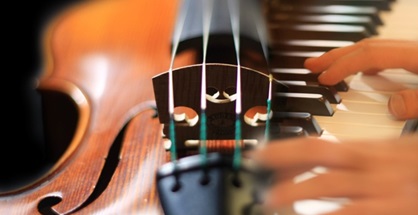
Having spent most of last month overseas and listening to a number of concerts, it was back to the familiar faces and sounds at the Auckland Town Hall last evening. A somewhat cliched subtitle to the concert nonetheless held some intriguing possibilities – Bartok followed by Bach and then Mendelssohn. But perhaps these might have slightly beyond the ken of some in the audience.
About a minute into the first work on the programme, someone piped up with a question: “What is this”. It was loud enough that the Concert FM broadcast might have picked it up. Well, I can report that it was the Bartok Music for Strings, Percussion and Celesta. You may have heard it in such films as The Shining and Being John Malkovich. Then again, maybe not.
The work requires an interesting stage set-up. Essentially, you put the piano and celesta in the middle of the stage and create two string orchestras on either side. The link to Bach as such comes from the first movement Fugue.
Now, I should confess here that neither Bach nor Bartok are amongst my favourite composers. This is partly due to some traumatic experiences learning music of both. Having said that, this performance was well done, particularly the second movement Allegro and the last movement Allegro molto where Bartok is at his most creative (or from a performer’s point of view, the cruellest). The tonal elasticity in the third movement from the timpani glissandi and the xylophone were both also highlights and the mysterious, even threatening, parts of the work were clearly conveyed. Scottish conductor Rory Macdonald, making his New Zealand debut with the Auckland Philharmonia, kept everything in check with his clear and broad sweeping gestures.
And so to Bach’s Emajor Violin Concerto, a piece that would be instantly recognisable as soon as you hear the first notes. Despite being one player down, the Philharmonia players, now pared down to chamber ensemble size, lacked for nothing in terms of depth and colour and were a pleasure to the ear.
Unfortunately, the same could not be said about the night’s Australian soloist Kristian Winter. On the whole, the performance was all right but minor issues such as intonation were highlighted against the quality playing from the orchestra. Winter did make up for some it in the second movement Adagio but the final Allegro assai was messy. Auckland audiences are very forgiving, though, and received their reward in the form of part of Bach’s Cello Suite No. 1 which was better.
Depending on where you sit, we have Felix Mendelssohn to thank or blame for literally resurrecting Bach and putting him in the position he now stands as the major composer of the Baroque Period and the master of counterpoint.
Ad Feedback
Luckily, there isn’t much in the way of Bach in Mendelssohn’s Third Symphony which made up the second half of the evening. Nicknamed the “Scottish” despite the composer’s vehement denials that there was any folk music in it, one can’t help feeling that there are highland dances in it somehow. So there also seemed some symmetry in having a Scottish conductor perform it and Maestro Macdonald seized it with gusto.
With the orchestra in good form, the tempi were quick, the energy in abundance and the dynamic contrasts exactly as they should be. A very satisfying performance which was duly recognised by the Town Hall audience.
View all contributions